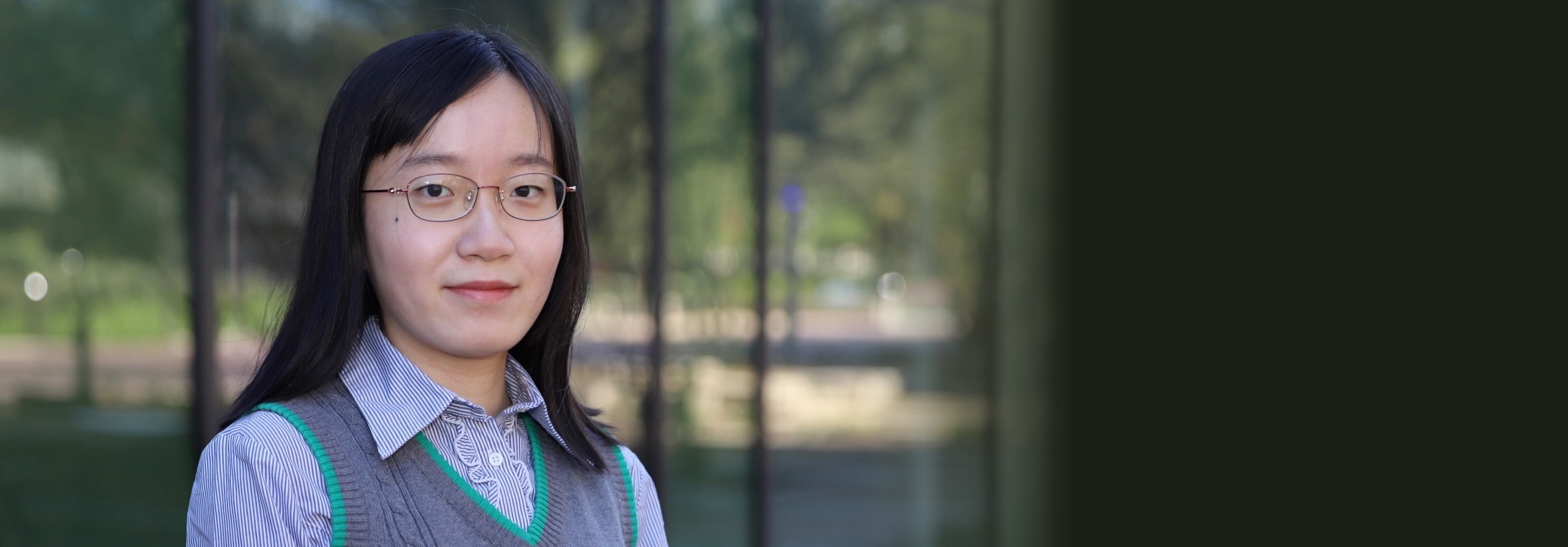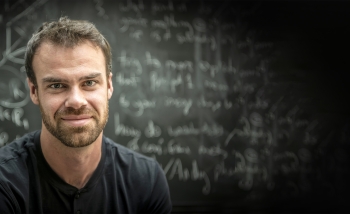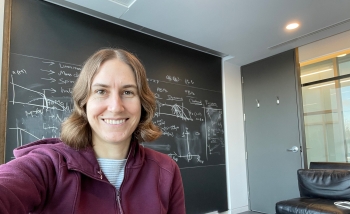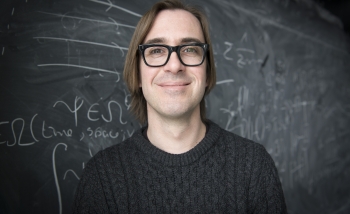Perimeter welcomes new Research Faculty member Sisi Zhou
Perimeter’s newest research faculty member, Sisi Zhou, joined the Institute in September 2023. Her research touches on some of the most pressing challenges facing researchers who want to turn quantum theory into practical, useful applications, especially in the growing field of high-precision quantum measurement – better known as quantum metrology.
Metrology is the study of measurement: it is the world of metres, grams, ounces, and teaspoons. But quantum metrology brings precision measurement to the microscopic world of particle physics, taking advantage of quantum effects like entanglement and “quantum squeezing” to improve accuracy.
Quantum metrology has already found applications in human medical diagnostics and in atomic clocks. It also plays a key role in improving the sensitivity of groundbreaking gravitational wave detectors like LIGO (the Laser Interferometer Gravitational-Wave Observatory).
“I’m looking forward to seeing more practical applications of quantum metrology in the future. We want to enhance the sensitivity of a signal, not just in principle but also in practice,” says Zhou.
The prospects for a quantum advantage – that is, an improvement over classical techniques – in metrology are exciting. That’s because every incremental advance has a noticeable effect: success doesn’t have to mean perfection but, rather, occurs on a continuum, in which you can gradually make improvements in precision.
“As long as the performance of the highest sensitivity you can get is better than the classical case, then you have shown the advantage of quantum. This perspective puts demonstrating quantum advantage in metrology in a favorable position,” says Zhou.
To make those improvements, Zhou is tackling one of the major hurdles facing quantum information research: how to correct for “noise” and decoherence. All quantum applications – from metrology to communications to computing – face the same hurdle, because quantum systems are fragile. Any interaction with the outside world can cause the information in a quantum system to be changed or obscured.
The solution to this problem is quantum error correction.
In the world of quantum tech, you can’t just back up information by making a copy, like you can with a classical computer. Instead, you need to use quantum entanglement to tie the information stored on one part of the quantum system to many other parts. That way, if one (qu)bit of information is lost, it can be recovered via its entangled partners.
“You can use quantum error correction to enhance quantum metrology,” Zhou explains. “If the quantum error correction code is good enough, you can reach a very high sensitivity in a metrology scenario.”
But the relationship between error correction and metrology is mutually beneficial, because understanding the theoretical limits of quantum metrology can also enable us to test the effectiveness of new quantum correction codes.
Zhou’s research has multi-disciplinary implications, and that is what attracted Zhou to the subject in the first place, combining her interests in physics, math, and computer science to solve problems across a spectrum of fields.
“All the subfields of quantum information science have been under rapid development recently. Quantum metrology is going to become more and more useful alongside the development of quantum computing and quantum communication,” says Zhou.
Zhou received her PhD from Yale in 2021 and joins Perimeter after a two-year postdoctoral fellowship studying quantum metrology and error correction at Caltech. Now, Zhou looks forward to new breakthroughs in Perimeter’s collaborative environment.
“I am excited to get started and to collaborate with the other faculty, postdocs, and students studying quantum information,” she says.
About PI
Perimeter Institute is the world’s largest research hub devoted to theoretical physics. The independent Institute was founded in 1999 to foster breakthroughs in the fundamental understanding of our universe, from the smallest particles to the entire cosmos. Research at Perimeter is motivated by the understanding that fundamental science advances human knowledge and catalyzes innovation, and that today’s theoretical physics is tomorrow’s technology. Located in the Region of Waterloo, the not-for-profit Institute is a unique public-private endeavour, including the Governments of Ontario and Canada, that enables cutting-edge research, trains the next generation of scientific pioneers, and shares the power of physics through award-winning educational outreach and public engagement.




